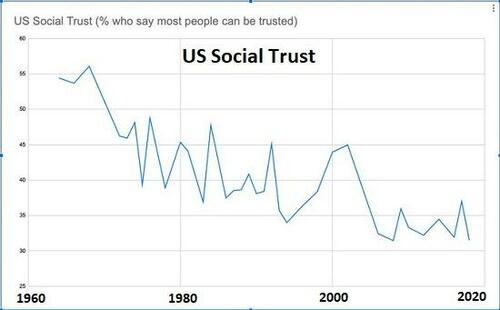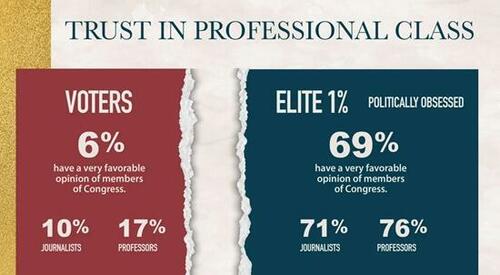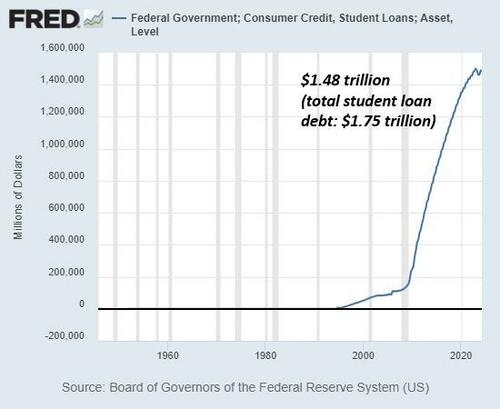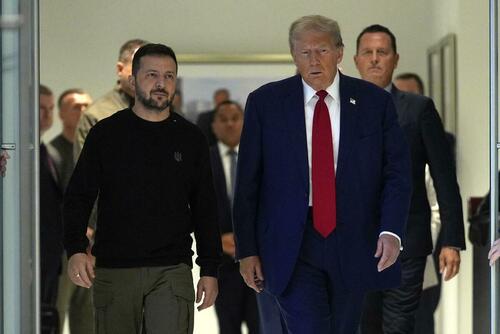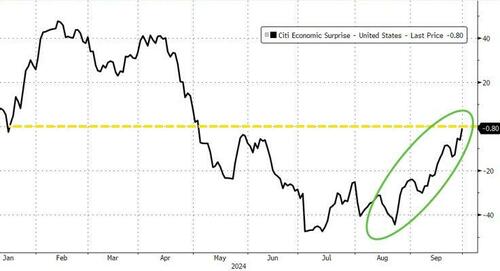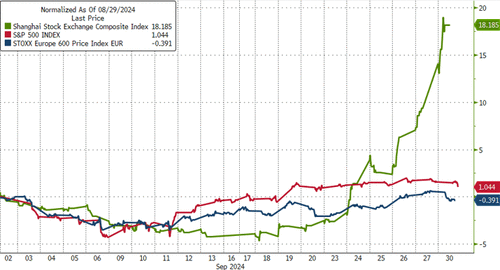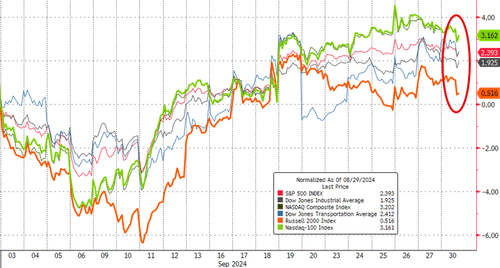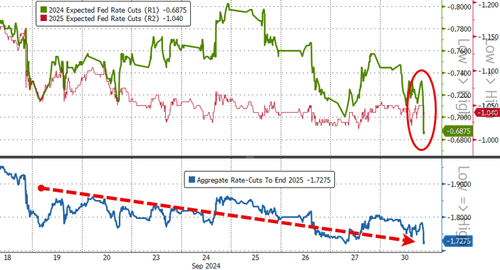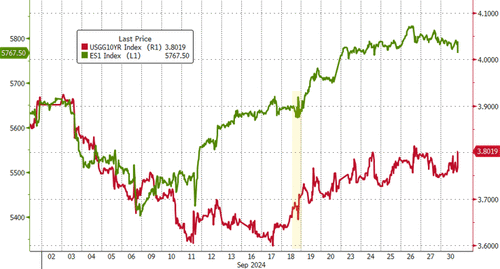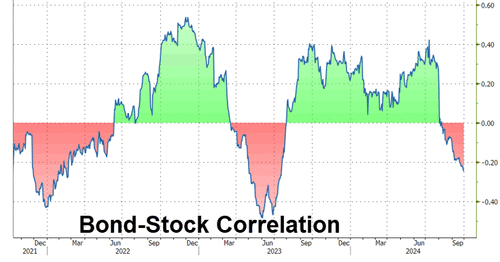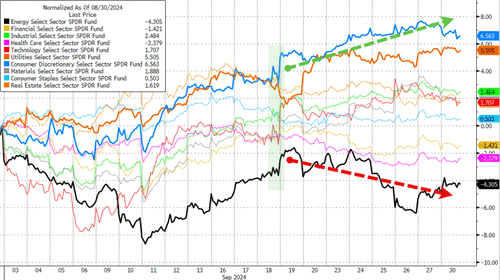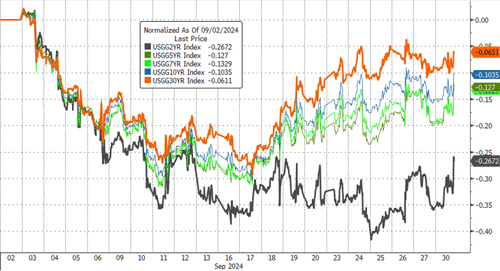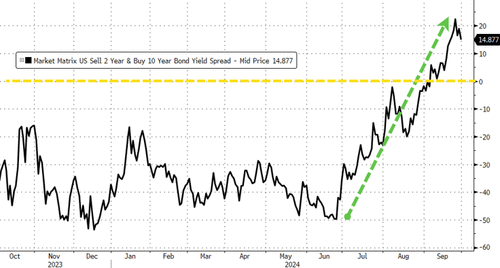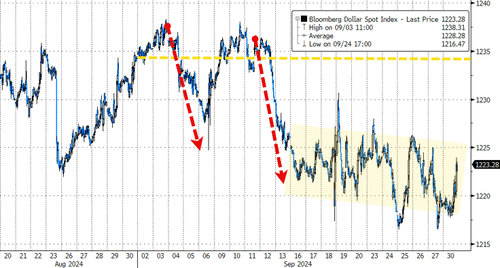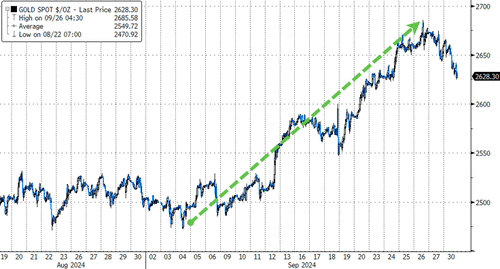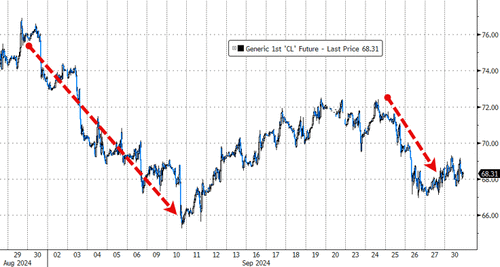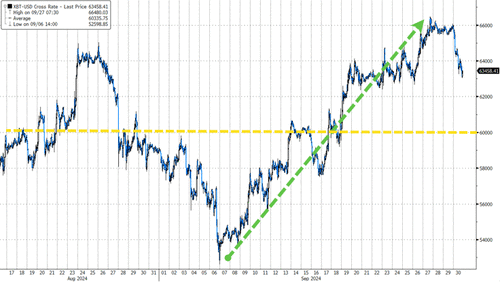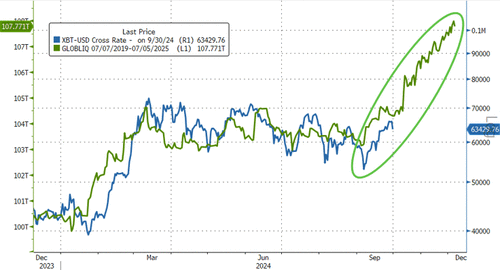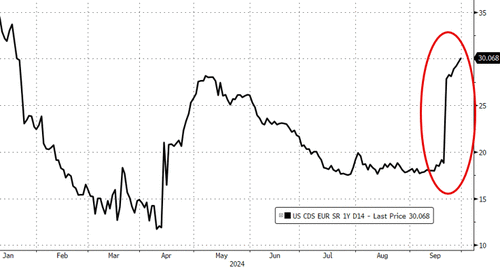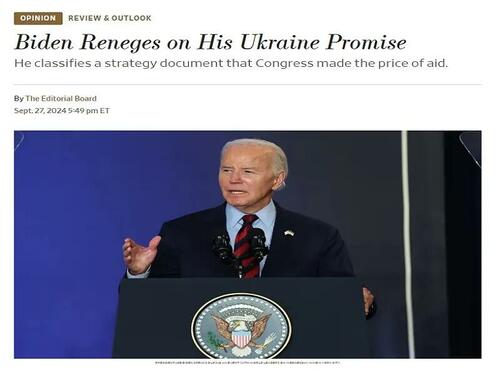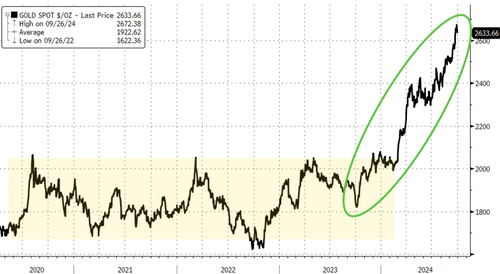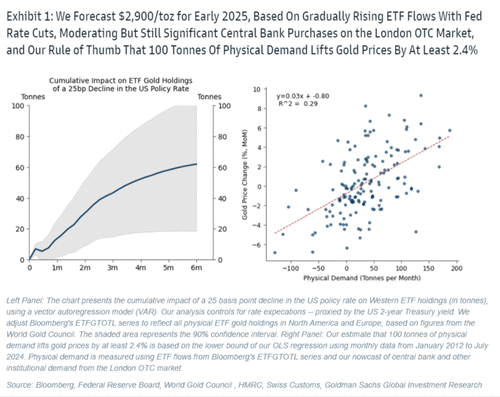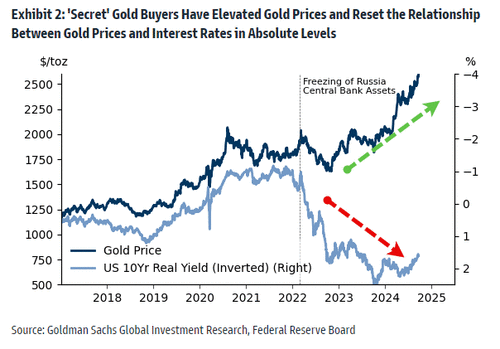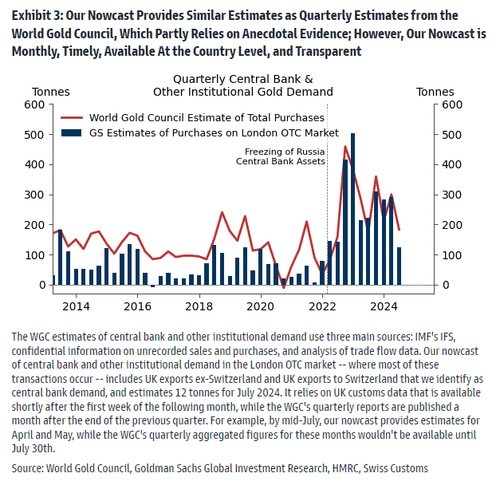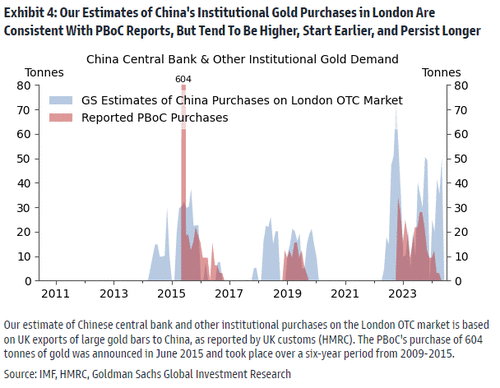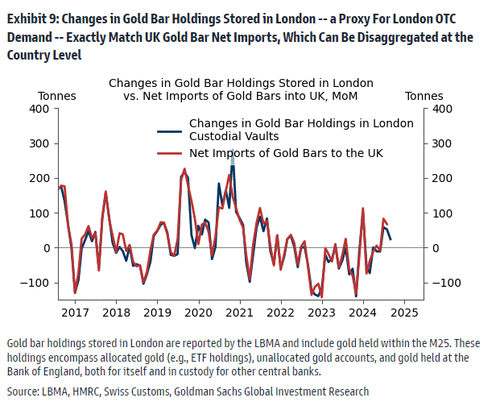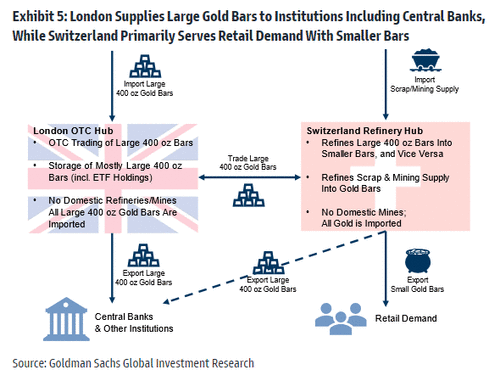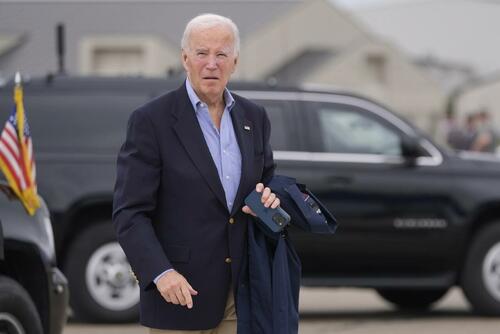Authored by Victor Davis Hanson via American Greatness,
About half of America sympathizes with Ukraine’s plight and wishes to arm it.
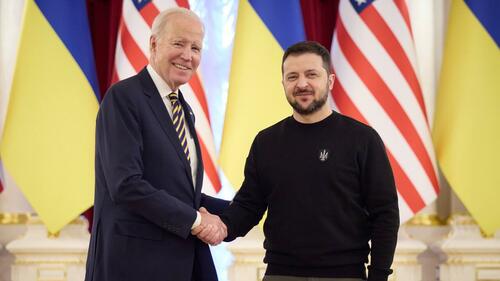
After all, Kyiv was attacked preemptively by Vladimir Putin on February 24, 2022, in an effort to decapitate its government and turn the country into a Russian satellite, perhaps similar to the status of a Belarus or Chechnya.
The heroic ability of the Ukrainians to save Kyiv and to stop the Russian assault beyond the occupied Donbas and Crimea has hinged on Western weapons deliveries, specifically from European NATO countries and, to a far greater extent, the United States.
But now, after a reported 1 million combined dead, wounded, or missing Ukrainians and Russians (the actual figure is probably far higher), the war remains deadlocked with no end in sight.
Putin serially threatens to break the static front with tactical nuclear weapons. The Europeans are tiring. And no one in the United States has come up with a strategy to push back the Russians from either their February 2022 demarcation points or their post-2014 occupation of Ukrainian borderlands.
The result is a lot of disconnects, paradoxes, and mysteries about the war, the Biden administration’s role in it, and the general geostrategic landscape surrounding the conflict.
Ukrainian Election Interference?
Americans are demonized by the Uniparty elites for having doubts about their blank-check support for Ukraine. And while the American people are mostly anti-Putin, they are not always pro-Ukraine.
But why is that so?
For one, we know that Ukraine interfered in the 2016 election.
Even leftwing Politico reported that Ukrainians in the U.S. gathered opposition research on Trump campaign officials and passed it to the Clinton campaign and thus likely her appendages in government.
In August 2016, at the height of that Trump-Clinton presidential race, Ukrainian ambassador Valeriy Chaly himself wrote an op-ed in the Hill attacking then-candidate Donald Trump for his comments about Crimea.
Ukrainian expatriate and U.S. citizen Lt. Col. Alexander Vindman was the catalyst and likely source behind the “whistleblower’s” allegations that led to the first impeachment of Donald Trump. Yet in retrospect, given subsequent disclosures about the Biden family‘s quid pro quo enrichment, Trump likely had reason to worry about feeding the ongoing Biden family Burisma corruption and collusion with Ukrainian oligarchs.
Via Hunter and Joe Biden, the Bidens really were receiving money from Ukraine in exchange for selling their influence. Joe Biden really did leverage $1 billion in congressionally approved U.S. military assistance to Ukraine. He thereby sought to have fired prosecutor Viktor Shokin, who was looking into the extravagant sums Hunter Biden was receiving from Ukrainian interests. And we know this because Biden later publicly bragged about how he threatened to cut off U.S. assistance unless Shokin was fired.
Vindman himself really was an anti-Trump partisan—and later cut a campaign commercial for the Lincoln Project. He likely had leaked a classified presidential phone call to the so-called whistleblower in order to prompt a third-party induced impeachment of a perceived anti-Ukraine Donald Trump.
He refused to disclose all the parties to whom he leaked the call. (Note that Joe Biden himself in May 2004 put a hold on congressionally approved 2,000-pound bombs to Israel, likely due to concerns of losing the Arab-American vote in key swing state Michigan—a better example of a president subordinating the national interest for his own political reelection agenda.)
Vindman was reportedly involved in a family company (as CEO of Trident Support) trying to facilitate repairs of U.S.-supplied military equipment to Ukraine. His wife recently and callously tweeted of the second assassination attempt on Trump, “No ears were harmed. Carry on with your Sunday afternoon.”
Ukraine’s efforts to compromise prominent Americans, interfere in U.S. elections, and use their American contacts to facilitate arms transfers still continue in outrageous fashion.
On September 23, just 43 days before Election Day, the Biden-Harris administration flew in, at taxpayer expense, Ukrainian President Volodymyr Zelensky and accorded him secret service protection as he visited the critical swing state of Pennsylvania—where the deadlocked election will likely be decided.
Zelensky and Democrat politicos (no Republican counterparts were invited) toured a Pennsylvania munitions plant making artillery shells likely destined for his Ukraine. One subtext of the visit was that Biden-Harris aid for Ukraine—to be continued or increased by a President Harris—results in jobs for Pennsylvania voters.
In an interview with the left-wing, pro-Biden-Harris New Yorker magazine, Zelensky—who himself has canceled both 11 Ukrainian opposition political parties and scheduled elections, suspended habeas corpus, and censored the media—regrettably went further in his \efforts at U.S. election interference. Zelensky trashed Harris’s rival candidate Donald Trump as someone who “doesn’t really know how to stop the war even if he might think he knows how.”
The Ukrainian president attacked even harder Trump’s running mate and vice presidential candidate, J.D. Vance, as “dangerous” and “too radical.”
Too radical for what or whom? The people of the United States or the Ukrainian hierarchy? Amid a firestorm, Zelensky later hurriedly met with Trump, which unfortunately only further highlighted his poor election timing.
One reason why many Americans are skeptical of helping Ukraine is, well, Ukraine itself—specifically its graft and corruption, its oligarchs’ disturbing history of bribing U.S. influential figures, its interference in U.S. elections, and its dictatorial suspension of human rights, political parties, and elections.
On to Moscow?
Strategically, it is understandable why Ukraine wishes to use European and American planes and missiles to strike depots and supply centers deep inside Russia, given Russia does the same to Ukraine—and focuses far more on civilian targets.
But to equip a proxy to attack far inside a nuclear rival’s homeland was always taboo in the Cold War—and for good reason, given the resulting lowered bar of nuclear escalation.
So, the Korean War, Vietnam, Afghanistan, and the wars in the Middle East all respected our ancestors’ Cold War rule: neither the U.S. nor the U.S.S.R. in their numerous proxy wars ever used their clients to attack the homeland of their nuclear opponents with either nuclear or conventional weapons.
When Nikita Khrushchev came close to doing just that by equipping Castro’s Cuba with missiles capable of becoming nuclear-tipped, along with nuclear-carrying strategic bombers that could hit the U.S. homeland, the Kennedy Administration went to Def Con 2.
It quickly blockaded the island. Kennedy further warned the Soviet Union that in case of any Cuban-based attack by missile or plane (conventional or nuclear) against the American homeland, the U.S. would retaliate against Russia itself.
So, we are caught in a very dangerous cycle.
Almost weekly, Putin himself, his generals, Russian politicians, or the Russian state media threaten to respond to attacks inside Russia by resorting either to tactical nuclear weapons against Ukraine or strategic nuclear strikes against its suppliers.
In response, our retired generals and intelligence authorities, along with pundits and diplomats—and our de facto commander-in-chief at the press room dais, Kamala Harris—discount these threats as empty bombast. They offer no consideration that what has been mere Russian braggadocio in 2022-2023 (when casualties were in the few hundred thousand and no Ukrainians were fighting inside Russia) might not be so vacuous in late 2024 or 2025. Now casualties have soared by over a million. And Ukrainian forces, equipped with a new arsenal of jets and missiles, currently occupy 500 square miles of conquered Russian territory.
In truth, the West and the U.S. have no strategy for a Ukrainian victory over Russia. Much less do they worry much that a quarter of the Ukrainian population has fled the country, and the military is running out of recruits. The default assumption is to keep fueling the 1 million-man meat grinder to the last Ukrainian and hope that Russia tires first—the sort of non-strategy that the left used to lecture was amoral and senseless in Vietnam, Iraq, and Afghanistan.
Why the Ukraine-Israeli asymmetry?
Israel, in many ways, is America’s closest ally. It is a constitutional state and the only nation in the Middle East that respects human rights. Its enemies are our enemies. And it is the target over the last half century of nonstop Arab and Iranian attacks.
Not so Ukraine that separated from Russia in August 1991, and yet still has a checkered history of corruption and authoritarianism.
In the present war, Ukraine has likely become the target of some 8,000-10,000 missiles launched from Russia. Yet that number is still smaller than the some 20,000 projectiles sent into Israel by Hamas, Hezbollah, the Houthis, and Iran.
Israel, like Ukraine, was surprise attacked by its neighbor. And like Russia, Hamas started the war without concern for civilians. Or rather, in efforts well beyond Russian brutality, Hamas deliberately targeted civilians for Dark Age-style murder, torture, mass rape, incineration, beheading, and hostage-taking.
It is hard to outdo Russian wartime savagery, but Hezbollah has accomplished that easily. And unlike post-Soviet Russia, it has blatantly murdered lots of American diplomats and soldiers. Hamas still holds American hostages.
So why does the Biden-Harris administration, and many elites in Washington, treat the two wars so differently? Or more specifically, why do they deify Zelensky and Ukraine but demonize Israeli Prime Minister Benjamin Netanyahu and Israel?
Note that Biden-Harris demand Israeli “proportionality” in responding to Hamas terror. But they encourage “disproportionality” for Ukraine to win the war. (Does America believe Russia is eviler than Hamas?)
They call for ceasefires nonstop in Gaza and the Hezbollah war. Yet do they ever commensurately instruct Ukraine to stop the war and negotiate with Putin?
Biden-Harris insist that Israel text or otherwise notify Gazans or Beirut civilians of any impending Israel attack. Do they demand the same of Ukraine when it shoots off missiles, shells, and drones into Russian-occupied civilian areas?
Netanyahu has formed a bipartisan war cabinet and will adhere to regularly scheduled elections. And yet he is still demonized as an authoritarian by Biden-Harris. Neither showed up for his recent congressional speech. In fact, in 1950s-Latin-American-coup-style, the U.S. government has been trying under the radar to remove the elected Israeli government.
Most certainly, Netanyahu would not be flown, Zelensky-style, by U.S. military transport to tour a Patriot battery facility in Pennsylvania or in any other election-year battleground state.
And if he was used by Republicans in such overtly partisan fashion, Netanyahu would be asked by the left to leave immediately—especially if he gave an interview from a swing state and, say, on Fox News, in which he trashed the Harris-Walz ticket.
We are warned by Biden-Harris that the Gaza/Hezbollah war should stop now, lest it ignite a theater war in which a possible nuclear Iran and a nuclear Israel would exchange missiles and blow up the region.
Yet, Russia is no putative nuclear power.
It possesses somewhere between 6,000-7,000 deliverable nuclear weapons. And it has threatened to use them far more often than Iran has.
Ukraine is on the doorstep of NATO and any regional war would endanger America’s NATO allies far more than an Israel-Iranian conflict.
Is the Iran-Hezbollah/Hamas/Houthis Axis that has emerged from the war more dangerous than the new nuclear Russia/China/North Korea/Iran symbiosis that is fallout from our massive support for Ukraine?
So why are we lectured nonstop about the dangers of Israeli brinksmanship but almost encourage it on the part of Ukraine?
Do we believe that Putin is more rational and restrained and less likely to go medieval than Iranian supreme leader Ali Khamenei?
Again, what explains the vast difference in the way we oversee our ally Israel’s war and Ukraine’s conflict with Russia?
Is the explanation anti-Semitism?
Hundreds of thousands of Muslim-American voters in Michigan?
The airbrushing of Middle East terrorists unthinkable of Russian thugs?
The sheer hatred of Russia and Russians, but the pass given to Middle Eastern autocrats?
The absence of a large expatriate community of Russians in the U.S.?
Hating Russians?
The left’s hatred of Putin’s Russia is understandable given Putin’s 2022 aggression, but it’s generic nature is now also becoming obsessive. The loathing of all things Russian helps to explain the above paradoxes and obsessions—even in the trivial sense of Joe Biden in his recent The View appearance wearing a U.S./Ukraine flag lapel in a way he would likely not a U.S./Israel flag counterpart.
There is also the shame and embarrassment of left-wing past naiveté about Putin.
After all, it was Barack Obama and Hillary Clinton who in 2009 gave us the performance art, red jacuzzi button, mistranslated Russian “reset.” All that hoopla was a direct partisan rebuke for the supposedly too-tough prior Bush administration response to Russia’s 2008 invasion of Georgia.
Recall that in 2013, Obama and John Kerry stupidly invited Putin back into the Middle East, supposedly to help corral Syria’s WMDs, after a near-35-year absence from the region.
It was also Obama, who, in a hot mic exchange in Seoul in 2012, promised that he would give up critical missile defense in Eastern Europe if Putin would just give him space during his last election. (Again, was that gambit impeachable under our new rules, given Obama clearly sacrificed America’s strategic interests to win temporary calm from an aggressive Russia to help his reelection?)
Both fulfilled their bargains: Putin waited until Obama was safely reelected and then invaded Ukraine in 2014, while Obama happily surrendered the nascent air defense project to protect eastern Europe from enemy missiles.
In contrast to Clinton-Obama appeasement of Russia, Trump killed Russian Wagner mercenaries in Syria. He gave previously Obama-banned offensive weapons to Ukraine. He opposed the Nord Stream 2 German-Putin pipeline. He got the U.S. out of an asymmetrical Russian-American missile deal. He jawboned NATO nations to up their collective defense expenditures by some $100 billion.
Trump also nearly bankrupted Russia by releasing oceans of cheap American oil and increased sanctions on Russian oligarchs. He made it clear to Putin that unfortunate things would follow from an invasion of Ukraine. Trump’s was the only administration of the last four when Putin stayed put within his borders.
As far as the 2016 Russian-Trump collusion, even Mr. Mueller’s “dream team” and “all-star” partisan “hunter-killer” cadre of lawyers found no such thing—as compared to the Russian-fed Steele dossier paid for by Hillary Clinton to smear Trump.
There was no “Russian disinformation” either in 2020 when team Biden rounded up corrupt ex-intelligence authorities to lie that Hunter’s genuine laptop was likely Russian fabricated.
So why the left’s hatred of Russians—other than the classic projection of blaming others for its own very disastrous appeasement of Putin that the left itself had inaugurated?
One other reason was that Trump endlessly rubbed left-wing noses in their Russian paranoias, joking that Putin might find Hillary’s missing emails, destroyed while in her custody and under subpoena.
When he was accused by Clinton partisans and hacks of being a “Russian asset” or “Russian poodle,” he deliberately bragged about his “deals” with Putin to inflame his critics even more.
In a larger context, Russians have replaced South African or Iranian villains in Hollywood action movies and popular entertainment. The new big-screen bogeyman is now nearly always a large brute with a shaved head, his torso dotted by orthodox Christian cross tattoos, gap-toothed, an exaggerated Russian accent, surrounded by creepy black-suited mafiosi—and full of racist and sexist hatred for liberal America.
In sum, there is an argument to help Ukraine survive Russian attacks.
But that consensus is daily being eroded by the present beltway messianic crusade for Ukraine, in a manner quite unlike our lukewarm and vacillating support for our far closer ally Israel.
The near-hysterical official Ukrainian narrative requires denying or ignoring the escalating dangers of our sophisticated weapons hitting deep inside Mother Russia, the Somme/Verdun-like endless wastage of over a million youths and counting, and the increasingly anti-democratic and election-interfering nature of President Zelensky and his Ukrainian entourage.
